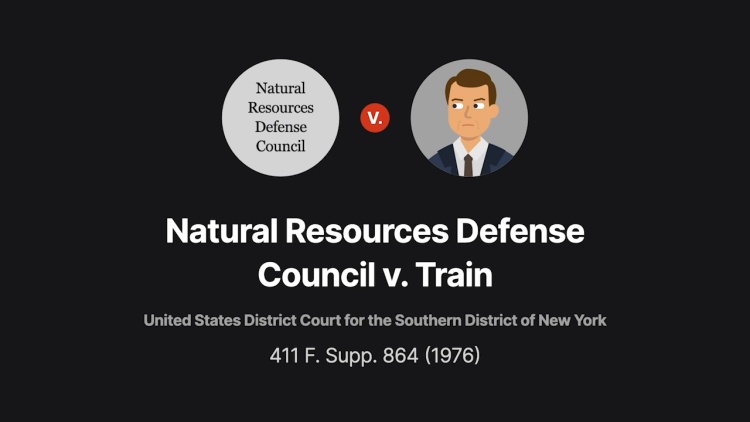Natural Resources Defense Council v. Train
United States District Court for the Southern District of New York
411 F. Supp. 864, aff'd, 545 F.2d (1976)
- Written by Tammy Boggs, JD
Facts
Natural Resources Defense Council (NRDC) and other parties (plaintiffs) sued the Environmental Protection Agency (EPA) and its administrator, Russell Train (the administrator) (defendants) for failing to list lead as a pollutant under the amended Clean Air Act (CAA). Before the act’s amendment, the administrator had determined that lead had an adverse effect on public health or welfare and that the presence of lead in the ambient air resulted from numerous diverse mobile or stationary sources. However, the administrator had not to date made plans to issue air-quality criteria for lead under § 108 of the CAA. Listing lead as a pollutant under § 108 would require the administrator to issue national ambient-air-quality standards (NAAQS) for lead. For various reasons, the administrator had chosen to regulate lead in motor-vehicle fuel under § 211 and not to issue NAAQS for lead under § 108. NRDC argued that the administrator had a mandatory duty to list lead as a pollutant under § 108 because the only two relevant listing criteria had been met. The EPA countered that a third listing criterion—“plans to issue air quality criteria”—was not satisfied and gave the administrator discretion not to list lead as a pollutant. The court was required to decide whether lead must be presently listed as a pollutant under § 108.
Rule of Law
Issue
Holding and Reasoning (Stewart, J.)
What to do next…
Here's why 907,000 law students have relied on our case briefs:
- Written by law professors and practitioners, not other law students. 47,100 briefs, keyed to 996 casebooks. Top-notch customer support.
- The right amount of information, includes the facts, issues, rule of law, holding and reasoning, and any concurrences and dissents.
- Access in your classes, works on your mobile and tablet. Massive library of related video lessons and high quality multiple-choice questions.
- Easy to use, uniform format for every case brief. Written in plain English, not in legalese. Our briefs summarize and simplify; they don’t just repeat the court’s language.





